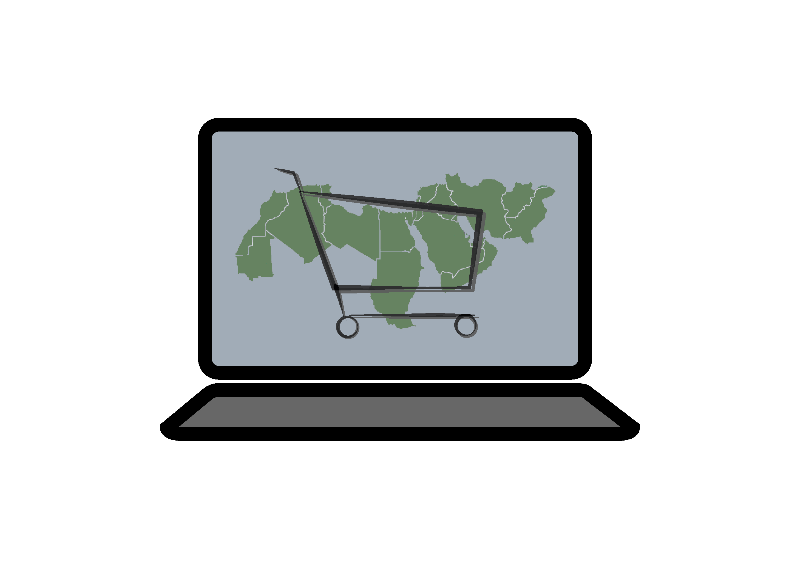Article in brief: the author explains how ecommerce is rapidly growing in the MENA region and urges Emiratis to join the world of eCommerce.

A region that has been filled with conflicts and political instabilities might not seem like the ideal place for eCommerce to grow in but the ambitious entrepreneurs in the Middle East & North Africa (MENA) region have proven that there is great potential for eCommerce in this part of the world. The MENA population exceeds 350 million with a $425 billion (AED 1.56 trillion) retail market size, according to Wamda. The online population is at 110 million, accounting for more than 30% of the overall population. According to a study conducted by IMRG (Interactive Media in Retail Group), B2C ecommerce sales in the region saw a 45% increase between 2011 and 2012 jumping from $10 billion (AED 36.7 billion) to $15 billion (AED 55 billion) respectively. eCommerce in the United Arab Emirates (UAE) alone is currently valued at $2.5 billion (AED 9.2 billion) and is expected to be valued at $10 billion (AED 36.7 billion) by 2018. While these numbers might appear lackluster beside the mature US & UK eCommerce markets, we have to look at the tremendous and rapid growth in eCommerce that the region has witnessed in the past few years.
Earlier this year, Bloomberg reported that Souq.com, a Dubai-based online store often tagged as the Amazon of the Middle East, was being valued at $1 billion (AED 3.67 billion) by investors. This made Souq.com the largest ecommerce player in the region. For a company that has been around for no more than a decade, it has redefined what eCommerce is in the MENA region. Moreover, in February of this year, a food takeaway platform founded by a Kuwaiti, Abdulaziz Al Loughani, and later acquired by owner of Kuwait London General Trading, Mohammed Jaffar, was sold to Rocket Internet for $175 million (AED 642.7 million) making it the largest acquisition of an eCommerce business in the region. However, as you may have noticed, all of the ecommerce ventures I have mentioned so far are not owned by Emiratis.
While ecommerce in the region has skyrocketed in the past decade, especially in the UAE, Emiratis remain to be a rarity in this field. Most major eCommerce players that are operating from the UAE, such as Souq.com and Namshi, are owned by non-Emiratis. Seeing how much more convenient it has become to launch an eCommerce platform with the emergence of a multitude of shopping cart software, payment processors and incubators, it is somehow shocking that Emiratis have not made use of those resources at their disposal. Emiratis need to jump on the bandwagon and become a part of this important journey that is going to redefine the future of retail and commerce in the region.
Not only do Emirati entrepreneurs have a small presence in the eCommerce market, but Emirati investors are also almost nonexistent in such fields. In a well-written piece, Omar Kassim, CEO and founder of JadoPado, an online marketplace based in Dubai, discusses the “poor regional funding climate” and how the lack of funding by regional and local investors has led major eCommerce players to be owned by outside investors.
All in all, eCommerce is the perfect gateway for ambitious Emiratis to lessen their reliance on governmental jobs and to embark on an entrepreneurial journey. ECommerce is still growing in the region and it is by no means at its peak; it is still at its infancy. However, an eCommerce boom will be occurring sooner rather than later in which we will witness significant growth in this market. Join the movement and make your mark before it is too late.



